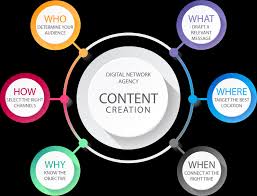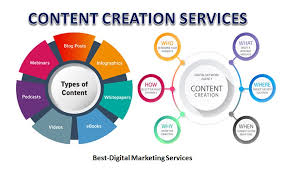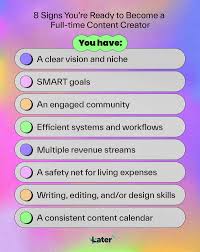Unlocking Success with a Leading Digital Content Creation Agency
The Power of Digital Content Creation Agencies
In today’s digital age, creating engaging and compelling content is crucial for businesses to connect with their target audience. This is where digital content creation agencies play a vital role in helping companies stand out in the crowded online space.
Digital content creation agencies are experts in producing various types of content, including articles, videos, graphics, social media posts, and more. They have the skills and creativity to craft content that resonates with audiences and drives engagement.
One of the key benefits of working with a digital content creation agency is their ability to tailor content to suit different platforms and channels. Whether it’s creating SEO-optimised blog posts for a company website or developing visually appealing graphics for social media campaigns, these agencies understand how to leverage each platform’s strengths to maximise reach and impact.
Furthermore, digital content creation agencies stay abreast of the latest trends and best practices in the ever-evolving digital landscape. They can help businesses adapt their content strategies to keep up with changes in consumer behaviour and technology advancements.
Collaborating with a digital content creation agency also allows businesses to save time and resources. Instead of struggling to create high-quality content in-house, companies can rely on the expertise of professionals who specialise in producing effective digital content.
Overall, partnering with a digital content creation agency can help businesses enhance their online presence, engage their target audience effectively, and ultimately achieve their marketing goals in today’s competitive digital environment.
Top 8 Advantages of Partnering with a Digital Content Creation Agency
- Expertise in creating engaging and compelling content
- Ability to tailor content for different platforms and channels
- Stay updated on the latest digital trends and best practices
- Help businesses save time and resources on content creation
- Professional approach to producing high-quality digital content
- Offer fresh perspectives and innovative ideas for content creation
- Assist in enhancing online presence and brand visibility
- Drive audience engagement and boost marketing effectiveness
Challenges Faced by Small Businesses When Partnering with Digital Content Creation Agencies
- Costly service fees may be a barrier for small businesses with limited budgets.
- Quality control issues can arise if the agency fails to understand the brand’s tone and messaging.
- Timelines for content delivery may not always align with the company’s marketing schedule.
- Limited flexibility in making last-minute changes to content due to agency workflows and processes.
- Dependency on external agencies may hinder in-house team development of content creation skills.
Expertise in creating engaging and compelling content
Digital content creation agencies bring a wealth of expertise in crafting engaging and compelling content that captivates audiences. Their professionals are skilled in understanding the nuances of storytelling, visual design, and audience engagement strategies. By leveraging their expertise, these agencies can create content that not only attracts attention but also resonates with the target audience, driving meaningful interactions and building brand loyalty. Their ability to produce high-quality, captivating content sets businesses apart in the competitive digital landscape, helping them connect with customers on a deeper level and achieve their marketing objectives effectively.
Ability to tailor content for different platforms and channels
One significant advantage of partnering with a digital content creation agency is their expertise in tailoring content for various platforms and channels. These agencies understand the unique characteristics and requirements of each platform, whether it’s crafting engaging social media posts, creating SEO-optimised blog content, or developing visually appealing graphics. By customising content to suit different platforms, businesses can effectively reach their target audience across multiple channels, maximising their online presence and engagement levels.
Stay updated on the latest digital trends and best practices
Digital content creation agencies offer a valuable advantage by staying updated on the latest digital trends and best practices. By keeping abreast of industry developments, these agencies can ensure that the content they produce is relevant, engaging, and aligned with current consumer preferences. This proactive approach enables businesses to leverage new opportunities, adapt their strategies effectively, and stay ahead of the competition in the fast-paced digital landscape.
Help businesses save time and resources on content creation
One significant advantage of partnering with a digital content creation agency is the ability to save valuable time and resources on content creation. By entrusting professionals who specialise in producing high-quality digital content, businesses can streamline their workflow and focus on other core activities. This not only increases efficiency but also ensures that the content created is engaging, effective, and aligned with the company’s marketing objectives. Ultimately, collaborating with a digital content creation agency allows businesses to maximise their output while minimising the time and effort required for content creation, leading to a more cost-effective and impactful digital presence.
Professional approach to producing high-quality digital content
Digital content creation agencies offer a professional approach to producing high-quality digital content, ensuring that businesses receive content that is not only engaging but also aligned with their brand identity and marketing objectives. By leveraging the expertise of skilled professionals in content creation, businesses can expect polished and well-crafted content that resonates with their target audience. This professional touch helps establish credibility, build trust with customers, and enhance the overall online presence of the business.
Offer fresh perspectives and innovative ideas for content creation
Digital content creation agencies bring a valuable pro to the table by offering fresh perspectives and innovative ideas for content creation. With their expertise and creativity, these agencies can inject new life into a brand’s content strategy, helping businesses stay ahead of the curve and stand out in a crowded digital landscape. By thinking outside the box and exploring unique approaches to content creation, digital content creation agencies can help businesses capture the attention of their target audience and drive engagement effectively.
Assist in enhancing online presence and brand visibility
Digital content creation agencies play a crucial role in enhancing a company’s online presence and increasing brand visibility. By leveraging their expertise in creating engaging and relevant content, these agencies help businesses establish a strong digital footprint across various platforms. Through strategic content distribution and promotion, they ensure that the brand’s messaging reaches the right audience at the right time, ultimately boosting brand recognition and visibility in the competitive online landscape.
Drive audience engagement and boost marketing effectiveness
A significant advantage of partnering with a digital content creation agency is its ability to drive audience engagement and boost marketing effectiveness. These agencies excel in crafting compelling and tailored content that resonates with the target audience, sparking interest, interaction, and sharing. By creating engaging content across various digital platforms, such as social media, websites, and email campaigns, they help businesses capture the attention of their audience and foster meaningful connections. This heightened engagement not only strengthens brand loyalty but also increases the likelihood of conversions, ultimately enhancing the overall effectiveness of marketing efforts.
Costly service fees may be a barrier for small businesses with limited budgets.
For small businesses with limited budgets, the high service fees of digital content creation agencies can pose a significant barrier. The cost of hiring a professional agency to create digital content may be prohibitive for smaller companies, especially when considering the ongoing need for consistent and quality content production. This financial constraint can limit small businesses’ ability to compete effectively in the digital space and hinder their efforts to establish a strong online presence. As a result, some small businesses may need to explore alternative, more cost-effective solutions to meet their content creation needs while staying within their budget constraints.
Quality control issues can arise if the agency fails to understand the brand’s tone and messaging.
Quality control issues can emerge when working with a digital content creation agency if there is a lack of understanding regarding the brand’s tone and messaging. When the agency fails to grasp the essence of the brand, there is a risk of producing content that does not align with the brand’s identity or values. This misalignment can lead to inconsistencies in messaging, diluting the brand’s voice and confusing its audience. It is essential for digital content creation agencies to invest time in comprehensively understanding a brand’s unique tone, style, and messaging guidelines to ensure that all content produced resonates authentically with the target audience and upholds the brand’s reputation.
Timelines for content delivery may not always align with the company’s marketing schedule.
One significant drawback of working with a digital content creation agency is that timelines for content delivery may not always align with the company’s marketing schedule. This misalignment can lead to delays in launching campaigns or publishing content, potentially impacting the overall marketing strategy and objectives of the company. Companies may find themselves having to adjust their schedules or compromise on the quality of content to meet deadlines, which can affect the effectiveness and success of their marketing efforts. Communication and coordination between the company and the agency are crucial to address this challenge and ensure that content is delivered in a timely manner without sacrificing quality or strategic alignment.
Limited flexibility in making last-minute changes to content due to agency workflows and processes.
One significant drawback of working with a digital content creation agency is the limited flexibility in making last-minute changes to content. Agency workflows and processes are often structured and planned in advance, which can make it challenging to accommodate sudden alterations or revisions to content. This lack of agility may result in delays or additional costs incurred when trying to implement last-minute changes, potentially impacting the timely delivery of content and overall project timelines.
Dependency on external agencies may hinder in-house team development of content creation skills.
Relying heavily on external digital content creation agencies may pose a significant drawback in terms of hindering the development of in-house team skills for content creation. When businesses outsource their content creation needs extensively, their internal teams may miss out on valuable opportunities to enhance their own skills and expertise in creating compelling digital content. This dependency on external agencies could potentially limit the growth and creativity of the in-house team, as they may become reliant on outsourcing rather than developing their abilities to produce high-quality content independently. Building a strong in-house content creation capability is essential for long-term sustainability and flexibility in adapting to changing market demands and trends.






